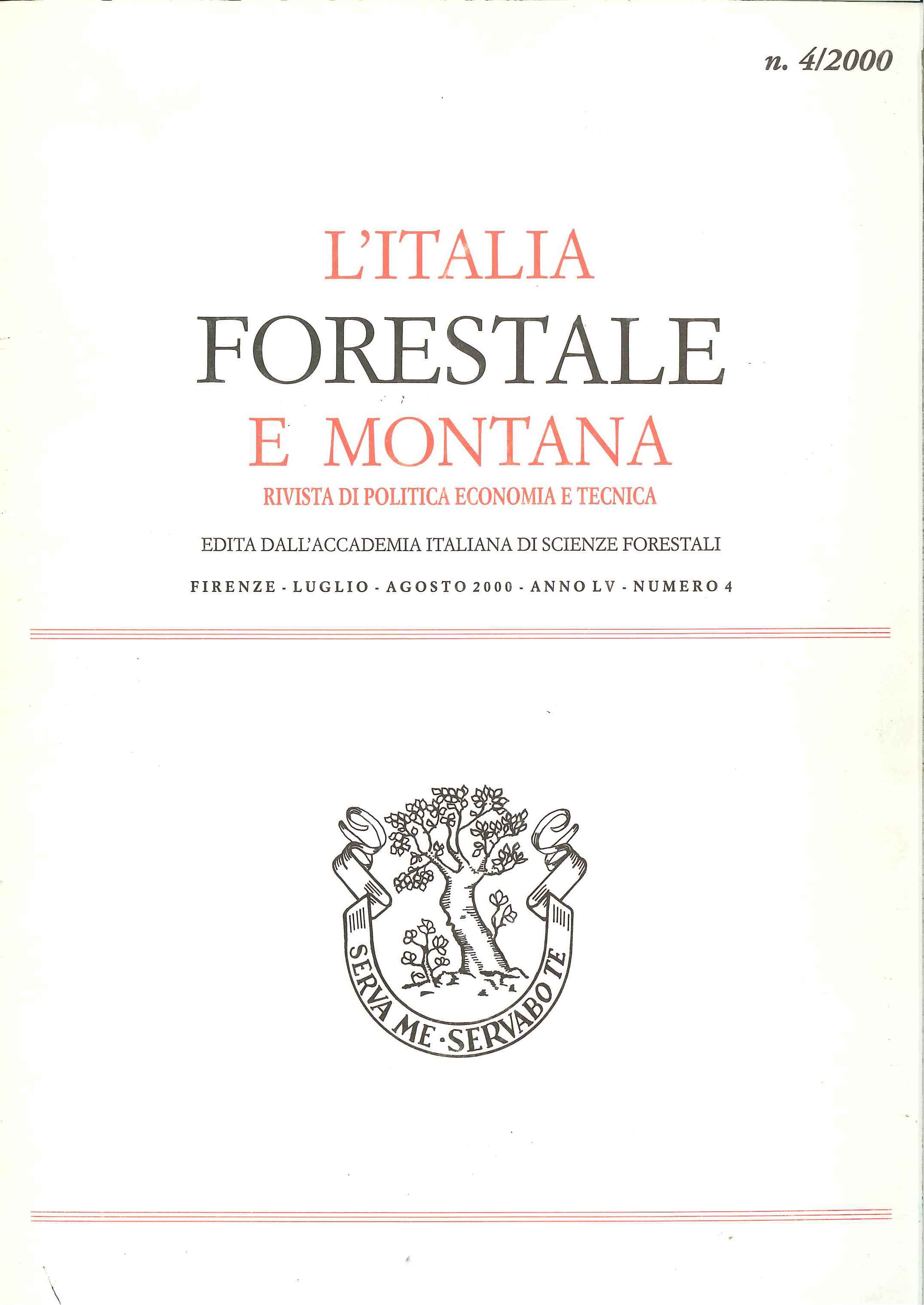Seed weight and Pisolithus ticnctorius mycorrization effect on the development of nursery grown Quercus ilex seedlings
Published 2013-06-19
Copyright (c) 2013 Italian Journal of Forest and Mountain Environments

This work is licensed under a Creative Commons Attribution-NonCommercial 4.0 International License.
Abstract
Aim of this work was to evaluate the role of Quercus ilex seed weight on the development of nursery grown seedlings, and its effects on the efficiency of Pisolithus tinctorius mycorrization. For this purpose seeds were divided into three lots according to their weight and sown on four different substrates: control, P. tinctorius-inoculated, pasteurized, pasteurized and P. tinctorius-inoculated. The test was conducted twice, in different blocks. Our results clearly showed that the size of seeds has a great influence on seedling development. The inoculation with P. tinctorius induced ectomycorrhizae on 35 % of the root tips, stimulated the development of Quercus ilex seedlings, and resulted in a greater elongation of fine roots. Moreover, from a thorough analysis of experimental data, we observed that the inoculation with the ectomycorrhizal fungus produced positive effects on the development of plants derived from large- and medium-sized seeds. Seedlings deriving from small-sized seeds recorded the poorest development either in presence of the inoculum or not.

